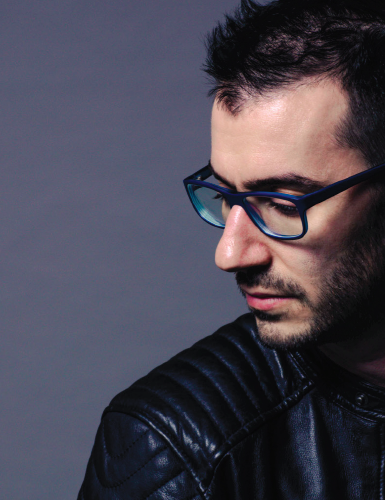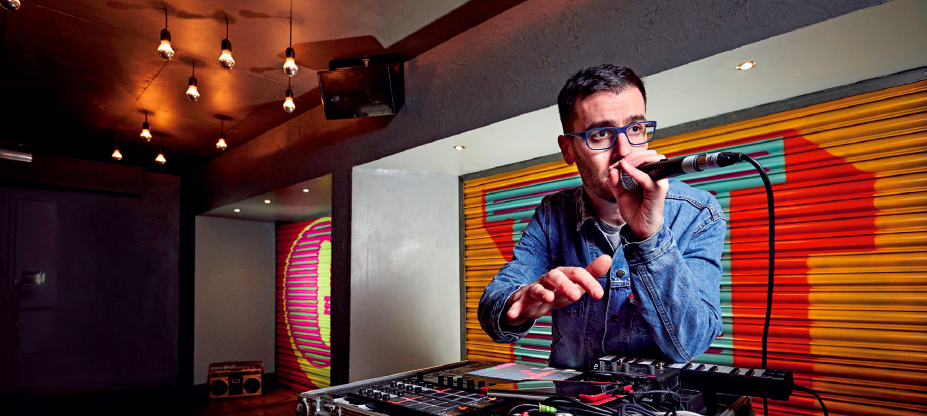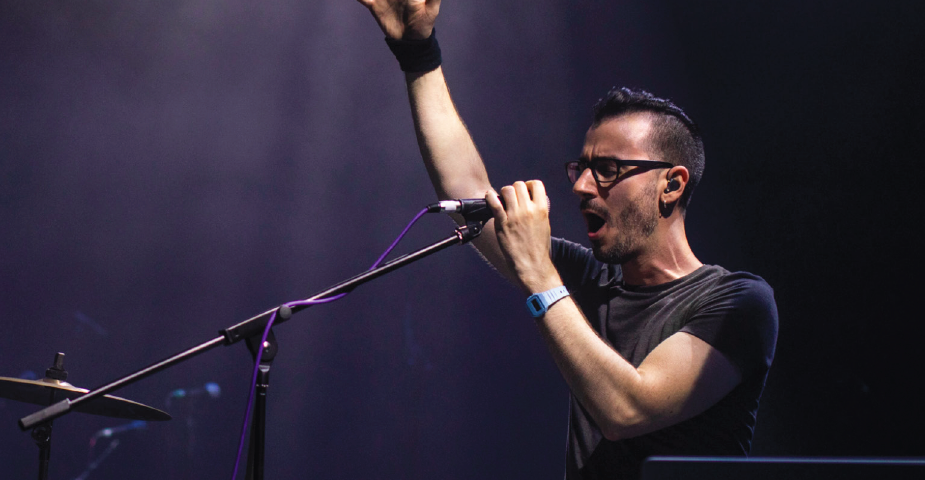Simon Shlomo Kahn, aka SK Shlomo, is a world-record breaking beatboxer, world looping champion, and collaborator with artists including Björk, Ed Sheeran, and Damon Albarn. For many years, he carried a secret: like many other creatives, he struggled with depression, and at times it felt like it was going to swallow him whole. This is his story, in his words.
In 2018, I had been off the road for nearly two years after a series of suicidal episodes. But last year, I launched my debut album to raise mental health awareness, gave a TEDx talk telling my story, played on the Other Stage at Glastonbury Festival, and created a one-man stage show that got nominated for the Edinburgh Fringe Mental Health Award.
I went from barely being able to perform in 2018, to heading on a tour of over 140 shows throughout 2019. I can’t tell you how proud I am to have made this recovery, and how grateful I am for the huge amounts of support I have received from family, professionals and from the public.
So when Novation asked me to write a piece about my story, I saw this as an opportunity to be honest about what happened to me. The intention is to encourage others to be more open about their vulnerabilities with the goal of normalising the concept of struggle. That way we collectively feel safer to support each other, rather than feeling isolated or believing that everyone else is living the ‘perfect’ life that we see on platforms like Instagram.
I have always identified as a performer. As a preschooler growing up in a noisy British-Iraqi-Israeli family, I believed all the countless Arabic aunties telling me I was beautiful. Aged three years old, I was belly dancing at my grandmother’s parties and I quickly learnt to win love by projecting a happy persona. My family’s loving praise made me the centre of the world - a world rich with vibrant colours, rhythms, and imagination.
Until I got to school. Grey, British primary school. We were the only immigrant family and aged four or five, I was painfully aware that I was different. I didn’t belong, and it hurt. Until I turned eight and discovered my super powers. On the day of my eighth birthday, my parents gave me a drum kit. And with that drum kit, I began a love affair with music that took me away from my pain. I found a rhythm - a purpose.
I started making tapes of songs I was writing, singing, rapping and drumming. I made rudimentary multi-tracked recordings by stealing my brother’s tape recorder so I could press play on one tape and record myself playing along on the other. I started to dream of becoming a world-renowned musician like my heroes — The Prodigy, Michael Jackson, and Freddie Mercury.
I kept practising my drums and, after a solo drum kit performance at the school concert, I had my first taste of ‘fame’. Suddenly, the kids who had never given me a second glance knew my name. They wanted to be my friends. This felt good, and it was addictive. I wanted more. I doubled down on my drum practice and applied for a scholarship at music school.
But after complaints from the neighbours, my parents had to impose strict rules about what time of day I could practise my drums.This wasn’t as bad as it sounds, because it led me to discover the art of beatboxing.
Beatboxing was an even easier way to impress people, gain acceptance, and even get free food by showing off my vocal skills to unsuspecting takeaway owners. What I hadn’t realised was that beatboxing would change my life.
One day I was approached by Björk to work on her all-vocal solo album, Medulla, an experience so inspiring I decided to go solo. I picked up a loop pedal so I could expand my beats into full songs. I became the first World Looping Champion, and the first non-classical Artist in Residence at London’s famous Southbank Centre.


